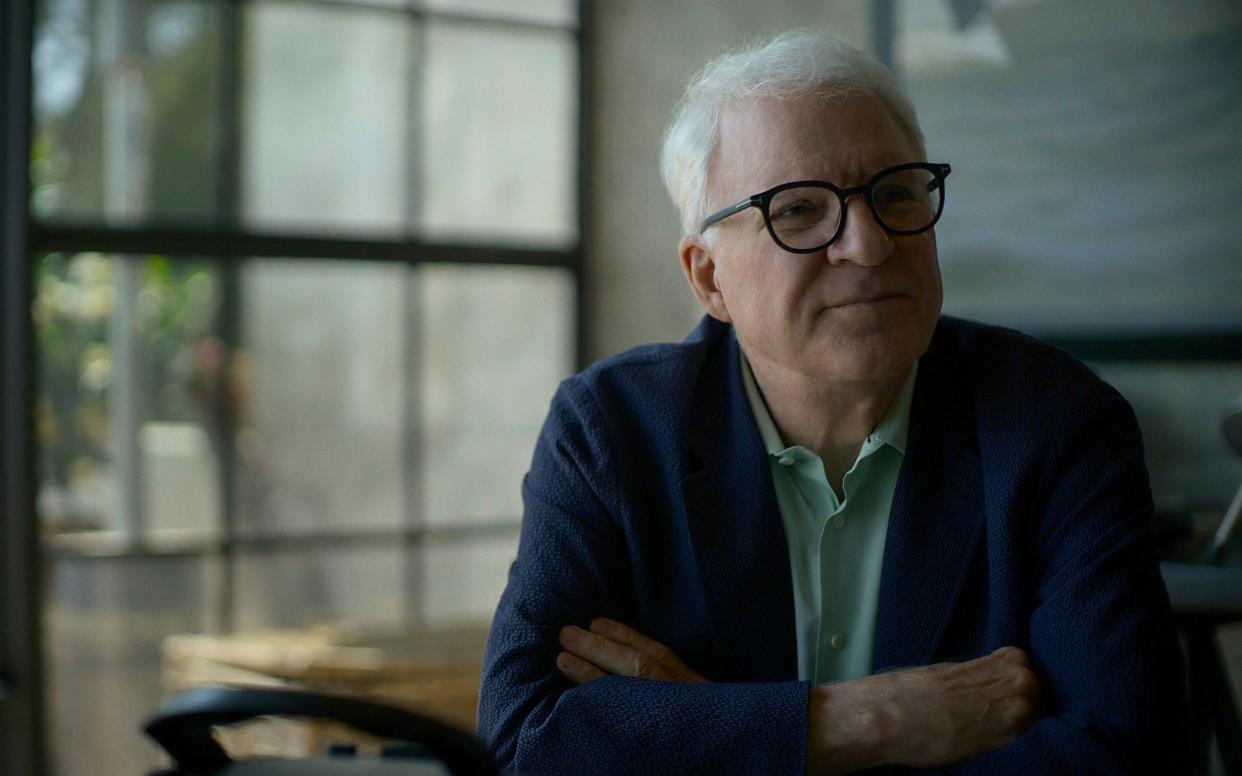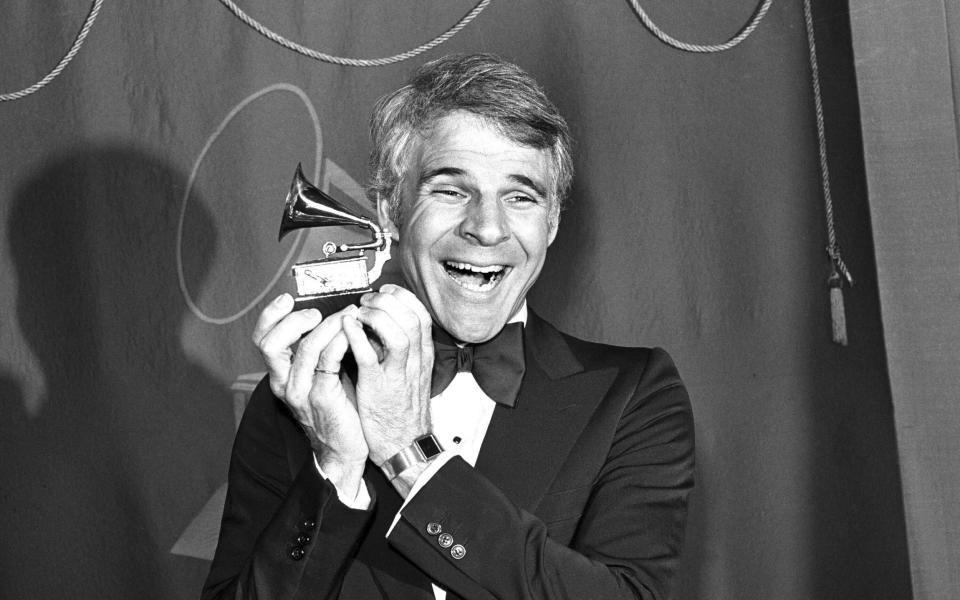Steve! (Martin) a Documentary in 2 Pieces, review: from star to failure – and back again

- Oops!Something went wrong.Please try again later.
- Oops!Something went wrong.Please try again later.
Being Steve Martin now – 78 and at peace, by and large – is a far cry from being him in the mid-1970s. His “wild and crazy guy” persona packed stadia, making him a fortune as the first ever rock star comedian, and ignited an American obsession with fashioning hats out of balloon animals and fooling around with banjos. Often, however, he felt like the loneliness man in the world.
Martin’s new documentary – Steve! (Martin) a Documentary in 2 Pieces (Apple TV+) – directed with placid competence by Morgan Neville (20 Feet from Stardom), is a double bill. “Then” has the dissatisfied young Steve pursuing his rocky road to fame, while “Now” looks back from his present vantage as a man with a whole new fanbase, thanks to the comedy-whodunit TV smash Only Murders in the Building.
In theory, you could just watch either, depending on which Martin floats your boat: the striving doofus whose college-humour routines suddenly caught on, or the pensive, cycling-fond old pro who collects Edward Hopper, jousts with Martin Short on stage, and has a 12-year-old daughter with his wife (and former New Yorker fact-checker) Anne Stringfield.
Paired as they are, the films set out to illuminate what has made Steve Martin happy. Not his first marriage (1986-1994) to All of Me co-star Victoria Tennant, essentially a friendship that soured. And not much of his Hollywood work, either: he had to notch up 40 films to guarantee “five good ones”.
Pulling the bound script of Planes, Trains and Automobiles (1987) off a shelf, he tears up remembering John Candy. That was a good one. Martin also adored Pennies from Heaven (1981), but fell into a despondent slump when it flopped. The 1970s equivalent of viral fandom was bound to fade, but his efforts to be respected in dramatic roles didn’t click for years: he had to stumble, take stock, and keep trying.

There’s one vicious reminder of the routine backlash even a supremely rich, generally beloved film star must weather. Martin was ambushed on a red carpet in 1996 by Paul Kaye’s obnoxious Dennis Pennis character, who begged to ask him a single question, then pounced: “How come you’re not funny any more?”. His wincing dismay as he walks off is painful to behold.
Somewhere along the way, it was this sensitivity of Martin’s, rather than the early façade of bravado, that re-centred his appeal. Tina Fey puts it well here, explaining there’s always a core of longing to his characters. This yearning dates back to having a father he found impossible to impress: “Well, you’re no Charlie Chaplin” was Glenn’s take on the premiere of The Jerk (1979).
That chilly upbringing left Martin wary of relationships for years, and rather too desperate to please. It’s telling that he had no child of his own until he was 66 – even more so that he insists on representing her here only with an animated squiggle drawing.
What deeper access we’re given into the inner life of Steve Martin is debatable – his egg-poaching rituals are a pleasant touch, in a second (warmer) half that hunts for little but pleasant touches. Hanging out with him as he spitballs material, and makes Jerry Seinfeld inexplicably guffaw, is what happens after breakfast. It may all be a little too much of an average thing.
Steve! (Martin) a Documentary in 2 Pieces is on Apple TV+ from Good Friday (29 March)

